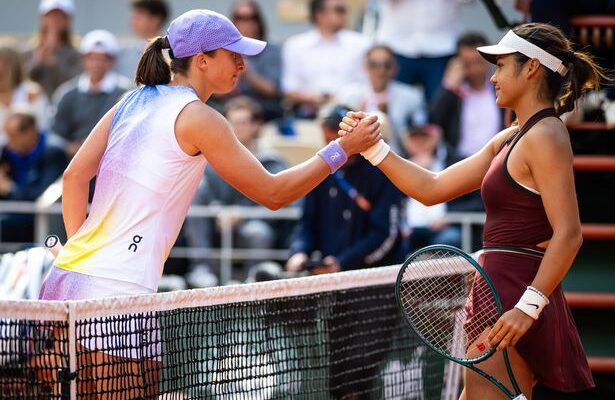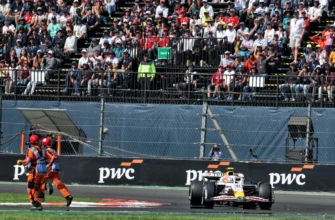PARIS — Iga Swiatek achieved a significant milestone in her pursuit of a potential record fourth consecutive French Open title – and fifth overall – by defeating Elena Rybakina 1-6, 6-3, 7-5 on Sunday.
Swiatek, who has faced challenges finding her peak performance this year and hadn`t reached a final since Roland-Garros a year ago, was trailing by a set and 2-0. However, she managed to elevate her game when it mattered most, securing her spot in the quarterfinals, where she is set to play Elina Svitolina from Ukraine.
What were the keys to her comeback, and what might this victory signify for her season? Here are three insights from this potentially crucial match.
Swiatek Found Her Serve
Rybakina, a former Wimbledon champion and recent winner in Strasbourg just before the French Open began, was exceptionally strong in the opening set. She hit 12 winners, consistently pressuring Swiatek. Swiatek`s biggest challenge was her serve, an aspect she has been working on with coach Wim Fissette but which has been inconsistent throughout the clay-court swing.
As the first five games quickly went to Rybakina in just over 20 minutes, Swiatek`s first-serve percentage was well below 50%, and she won only 20% of points when relying on her second serve. She managed to stabilize slightly towards the end of the set to at least win a game, but her serve remained a liability. In the second set, she opted for less pace, focusing on better angles and using more body serves. As Rybakina`s intensity waned slightly, Swiatek found her way back into the match.
By the match`s conclusion, Swiatek`s first-serve percentage had improved to 57%, while Rybakina`s dropped below 50%. This allowed Swiatek more opportunities to engage in rallies and shift the momentum of the match.
Swiatek Stayed Patient, Increased Spin
During her well-documented difficulties this spring, Swiatek`s game sometimes unraveled when under pressure, leading to early exits in Stuttgart and Rome and a decisive loss to Coco Gauff in Madrid. But in this match, despite showing frustration towards her team at times, she maintained enough composure to think clearly and make tactical adjustments.
By standing deeper for returns, she improved her ability to start points effectively against Rybakina`s serve. She also began to utilize her crosscourt forehand with great effectiveness, drawing her opponent out wide on the court.
Even at 4-4 in the final set, after believing she had secured a break only for an umpire to correct a double fault call on examination of the mark, she remained patient. She held her own serve comfortably in the following game before breaking Rybakina for a 6-5 lead and then serving out the match for the victory.
“First set I felt like I was playing against Jannik Sinner,” she commented. “I needed to do something to get back into the game. The way she was playing, I didn`t have a lot of hopes, but I kept fighting. At the end I was able to play my game so I was happy.”
What Could This Mean for Swiatek?
Everything. Sometimes, a single moment or a significant result can completely transform a player`s season. The intensity of Swiatek`s celebration after her final forehand winner, marked by a double fist pump, clearly conveyed a mixture of joy and profound relief.
A month prior, this might have been a match she would have lost quickly. But this performance was much closer to the vintage, dominant Swiatek – hitting forehands with ferocious spin and finding tactical solutions when needed. When Rybakina defeated Jelena Ostapenko, an opponent against whom Swiatek had a challenging record, it seemed like a fortunate break for Iga. However, securing a win against Rybakina herself, who had previously beaten Swiatek four times out of eight, won both their previous meetings on clay, and was playing incredibly well, could be the victory that starts to rebuild her aura of invincibility.
Swiatek`s primary competitors for the title, who perhaps sensed vulnerability coming into the tournament, will undoubtedly take notice.






